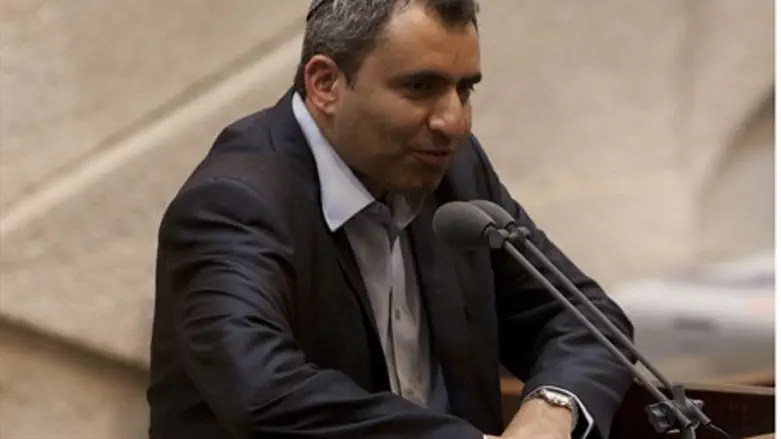
Israel will be able to stop Iran’s nuclear program on its own if necessary, Deputy Foreign Minister Ze’ev Elkin (Likud) said on Tuesday.
Speaking to Arutz Sheva a day before negotiations between Iran and the West are to resume in Geneva, Elkin backed recent statements by former national security adviser, Yaakov Amidror, and Economy Minister Naftali Bennett.
Amidror said on Sunday that Israel could stop Iran’s nuclear program “for a very long time” if it wanted to and that there was “no question” that Prime Minister Binyamin Netanyahu would be prepared to make the decision to strike Iran’s nuclear facilities unilaterally if necessary.
Bennett said on Monday that “Israel has the ability to defend itself, and Israel will defend itself if necessary.”
These statements, Elkin said, echo what Netanyahu himself said in his last speech at the United Nations.
"We’ve said things very clearly and this is what the Prime Minister said at the UN. We said that if the world does not act we will solve the problem alone, and we meant just that,” he stressed, adding, “We are able to act. It's not easy. Our ability to cause damage to Iran's nuclear program is not as strong as that of the Americans, but this ability is definitely there and we cannot sit back if we see that Iran is advancing towards a nuclear weapon.”
Elkin warned that the deal currently being offered to Iran could result in a similar situation as with North Korea.
"This deal is not good because it leaves a big chance that we will be surprised and Iran will break out towards a military-nuclear program, and an example of this is North Korea,” he said. “When you talk with the South Koreans you see exactly what is the price of a bad deal. It appears as though right now we are headed towards a bad deal, a deal in which Iran contributes irrelevant things that may have had significance a year or two ago, but in light of Iran's technological progress have no meaning now.”
He noted that it cannot be said for certain that a deal with Iran will indeed be signed this week, pointing out the failure of the last round of talks due to France’s tough position towards Iran’s nuclear program.
"I agree that it is very likely that an agreement will be signed but it is not for sure,” said Elkin.
Ahead of Wednesday’s talks, Iranian Foreign Minister Javad Zarif released a video in which he emphasized his nation's "rights" and "dignity" in pursuing a nuclear program.
In the video Zarif claimed the Geneva talks have not "hit a dead end" following the collapse of the previous round of talks.
Meanwhile, U.S. National Security Adviser Susan Rice played down the impact that a limited lifting of economic sanctions would have on Iran.
Rice told CNN that the deal being offered to Iran by the West is "a good one." Specifically, she said, it will roll back the Iranian nuclear program in key respects over a six-month period while increasing the transparency surrounding the program so that the Iranians "can't sneak out or break out."
On Monday, U.S. Secretary of State John Kerry said that Israel has "every right" to voice opposition to a potential nuclear deal with Iran but declared that Netanyahu’s fears were unfounded.
"Nothing that we are doing here, in my judgment, will put Israel at any additional risk," Kerry said. "In fact, let me make this clear, we believe it reduces risk."

